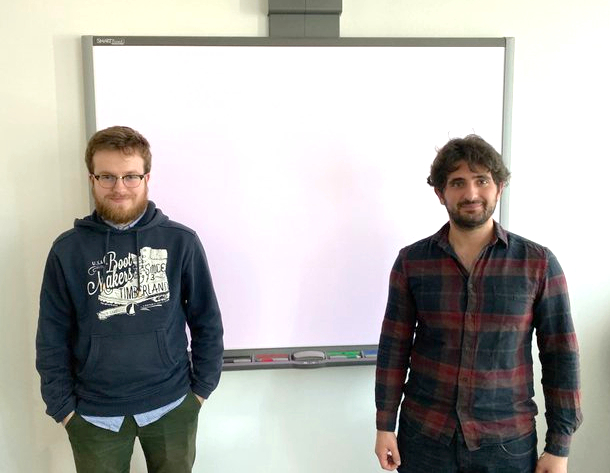Germany. 28.01.2020. On January 21th, 2020, our team members Borjan Geshkovski and Domènec Ruiz-Balet PhD students at CCM – Chair of Computational Mathematics talked about “Mathematical Control and Deep Learning” and “Control under constraints of reaction-diffusion equations” at FAU -Friedrich-Alexander-Universität, Erlangen-Nürnberg -Germany.
This Applied Analysis talk present the most basic concepts of deep learning from a mathematical perspective. Several links with mathematical control are discussed.
Reaction-diffusion models typically intend to predict the behavior of quantities such as concentrations, densities, or proportions. These quantities are, by nature, nonnegative or taking values between [0, 1]. For this reason, in practice, any control strategy that one might propose should satisfy that the controlled trajectory is between the proper bounds. The talk will be centered in the boundary control of scalar reaction-diffusion equations. The first issue to notice is that one should notice is that, nontrivial positive solutions of the steady-state problem will be a fundamental obstacle to controllability due to the comparison principle. Indeed, if we take an initial datum above it, we will never be able to control the system. Whenever controllability is possible, the primary strategy is to use the staircase method. This method guarantees the controllability in large time among admissible connected steady-states. Furthermore, the results for spatially heterogeneous drifts will be presented.

